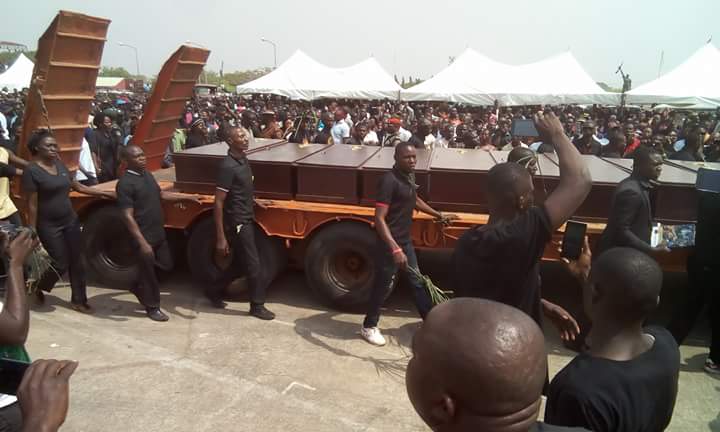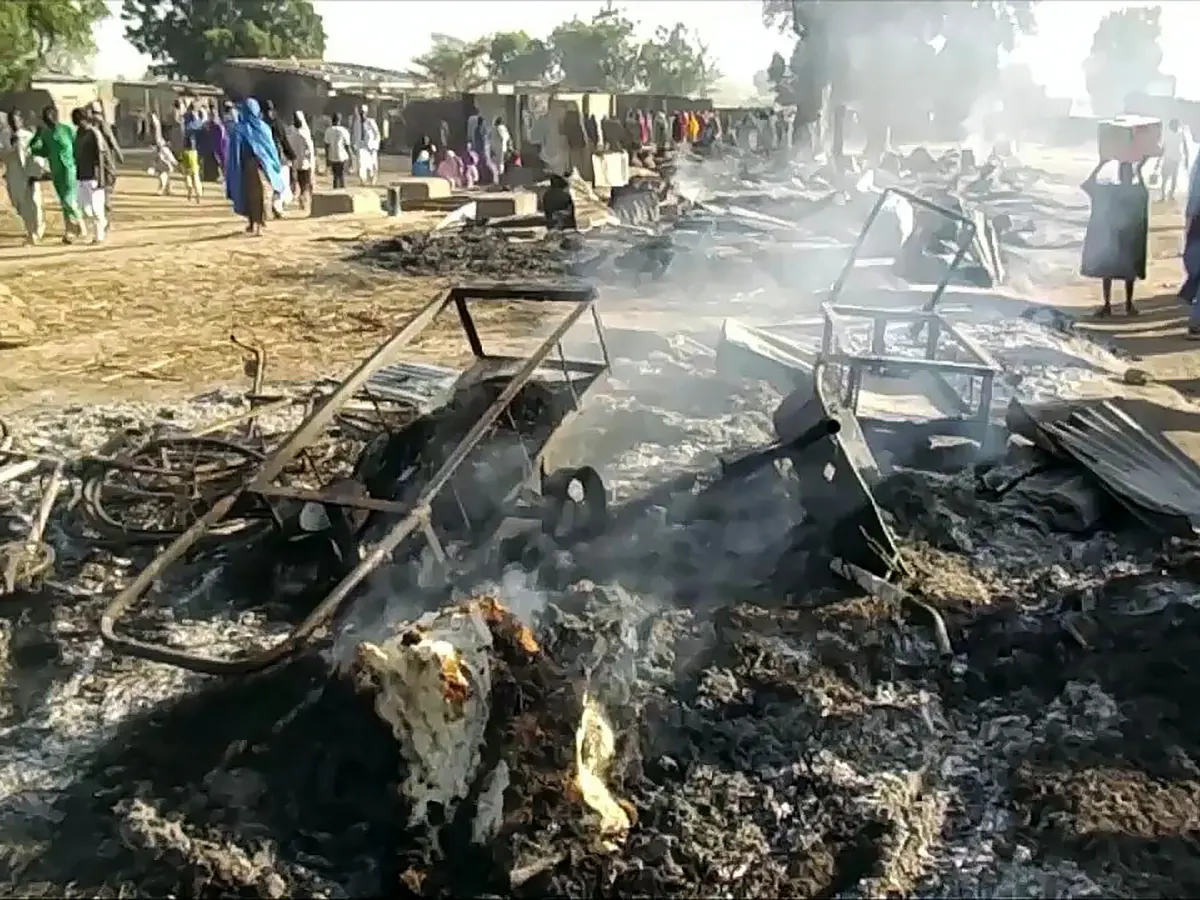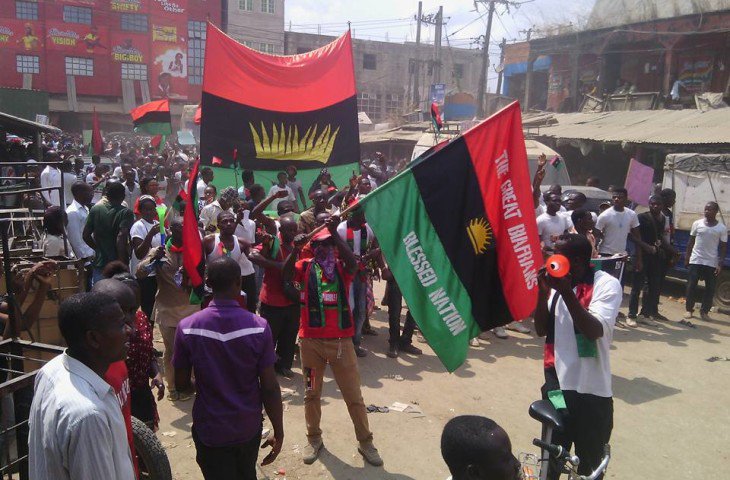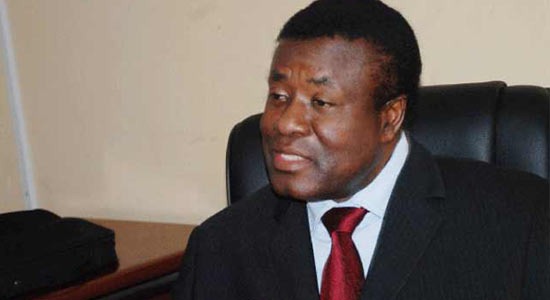What Tinubu will do about violent extremism and ethnic agitations

Key Points:
-
Violent extremism, linked to religious strife, is a major problem in Nigeria
-
Tinubu is seen as a liberal Muslim; he may not be discriminatory in appointments
-
Tinubu should come up with policies that will protect Christians in the North from attacks by religious extremists
-
Tinubu’s approach to ethnic agitations will differ from Buhari’s
-
As a member of NADECO, Tinubu knows what it means to be an agitator; he’ll run an inclusive government
By Theophilus Abbah
Nigeria’s political class attempts to discount the magnitude of violent extremism linked to religious strife in the country, but many incidents of senseless bloodshed in the country since 1953 are associated with intra- and inter-religious conflicts.
The caption of an in-depth report by Genocide Watch, an international human rights monitoring organization, eloquently captures the nature of the violent extremism in the country. In a 2020 report, it says: “Nigeria is a killing field of Defenseless Christians.” The publication went to elaborate: “350 Nigerian Christians were massacred in the first two months of 2020. Over 11,500 Christians have been murdered since June 2015. Four to five million Christians are displaced… 2,000 churches were destroyed.”

Mass Burial for Victims of Benue Killings
Photocredit:Online
Terrorist acts, perpetrated by Boko Haram in the last decade and counting are anchored on the sect’s desire to establish an Islamic state, presupposing that other Islamic sects that do not exhibit militancy, or other religious groups, mainly Christians, cannot co-exist in a Boko Haram society. The sect abducted over 200 Chibok schoolgirls, mainly Christians, in 2014, and it is holding in captivity Leah Sharibu, a Christian girl for over five years now, for not renouncing Christianity, Apart from Boko Haram, some of the violent campaigns by bandits have religious undertone, though many political leaders and scholars have denounced the wicked Fulani kidnappers as those who have no respect for God or religion. But it is not only terrorists or bandits who exhibit bigotry; some Islamic scholars in the North use the colour term ‘infidel’ to malign and target innocent Christians.
The role of government in dealing with violent extremism has become a debate in Nigeria, as government has consistently pushed back when the United States blacklisted the country as one where Christians and minority religious groups are persecuted. Of course, the Federal Government may not be guilty of directly persecuting Christians, but it fails to lift a finger when non-state actors and state governments target Christians for attack. In spite of the multiplicity of attacks on Christians and churches, no measures have been put in place to protect or defend them from those who openly take pride and think they do service to God when they assault and massacre Christians.For instance, it is not clear how government tackled the killing of Debora Samuel by a mob made up of students of Shehu Shagari College of Education in Sokoto in May 2022.

One of the sites of Boko Haram attack in Nigeria
Photocredit: The Guardian
As a matter of fact Christians in the North are the main victims of religious violence and bigotry, though some Muslims in the South have complained about discrimination meted out to them in the South. Many Christians in the North have been killed in shariah-related violence; their daughters married off to unlikely Muslim suitors by (Muslim) traditional rulers, especially in the North-West.
Many have been denied positions in the civil service in states where they are indigenous; their children denied admission to study in choice courses in some northern tertiary institutions. Worse of all, many northern Christians are relegated in terms of political appointments, as Muslim political leaders in many northern states are reluctant to nominate Christians for federal political appointments. It was in this light that Tinubu’s choice of Kashim Shettima as his vice-presidential candidate was perceived and resisted last year. Northern Christians, usually denied of federal positions, saw Tinubu’s decision as denying them a golden opportunity of producing a northern Christian vice-president, as it would be very difficult for a Christian to grab presidential ticket if the position is zoned to the North.
Nigeria is a killing field of Defenseless Christians
As governor of Lagos State, Tinubu, though a Muslim, was liberal in his approach to religion. As it is popularly known, his wife, Remi, is a Christian and minister with the Redeemed Christian Church of God (RCCG). So are his children. In terms of his policies as they affect Christians, when Tinubu was governor, he allocated acres of land for Churches to build ‘cities,’ along Lagos – Ibadan Expressway; though he allocated large sizes of land to NASFAT and other Muslim groups as well.
Also Tinubu returned missionary schools, which were taken over by previous Lagos state governments, to their parent churches, though the state still gave a measure of support to such schools. More over, in all his years as governor, church buildings, even when constructed wrongly in Lagos State, were never pulled down. Among his political protege were Christians like Vice President Yemi Osinbajo, who was Tinubu’s Commissioner for Justice and Attorney General of Lagos State, Mr Akinwumi Ambode and Babajide Sanwo-Olu, both Christians, who were voted in as governors of Lagos State in 2015 and 2019 respectively.
Chief Femi Fani-Kayode, a member of the defunct APC presidential election council, believes Tinubu cannot be sucked into the discriminatory politics in the North. He argues that from Tinubu’s approach to religion in the past was very liberal and his election as president may not alter his disposition.
However, there is a need for deliberate steps to be taken to address the grievances of northern Christians over their marginalization, even in states where they are indigenous. The Tinubu administration must deliberately pursue religious inclusiveness, not only at the federal level, but he must encourage state governors to be intentional when making political appointments into state and federal positions. In the minimum, northern state governments must enact policies that protect Christians from attacks by Islamic zealots under any guise; there must also be a measure that would ensure the allocation of a certain percentage of political positions to indigenous Christians, even if they constitute a minority. Nigeria should not be a paradise for bigotry and senseless bloodshed in the name of religion.
Ethnic agitations:
With the exception of the North-Central geopolitical zone, deadly ethnic agitations have erupted from almost every other region in Nigeria over the years. Though the minority ethnic communities in the North-Central have complained of marginalization by the Hausa/Fulani North, none of the groups has taken up arms against the State to make their demands. From the South-East, we have the Indigenous People of Biafra (IPOB), an offspring of the Movement for the Actualization of the Sovereign State of Biafra (MASSOB), is the rebirth of the defunct Biafra dream. The violent activities of IPOB, which became prominent since the Buhari regime, have crippled social, political and economic activities in the geopolitical zone. A lot of man-hour is lost to the sit-at-home phenomenon in the past two years in the South-East. In Naira terms, the loss is estimated to be about N4 trillion, almost a fifth of the country’s annual budget. The zone has become a danger to indigenes and visitors. The Niger Delta Avengers (NDA) has kept alive some of the features of the defunct Movement for the Emancipation of Niger Delta (MEND) and the Movement for the Survival of Ogoni People (MOSOP).

Some IPOB agitators, Photocredit: Premium Times
In 2016 alone, the oil revenue lost to the activities of the NDA was said to be over $10 billion, an amount that could lubricate massive development in the country. In the South-West, the spirit of the Oodua Peoples Congress (OPC), though now less violent, is still roving around the six Yoruba States. The Jihadist groups in the North and the criminal Fulani herdsmen are also prosecuting ethnic agenda. These agitations are anchored on allegations of inequality, injustice, repression, inequitable distribution of the common resources of the country, and the kind of nepotism that enables a section of Nigeria access to wealth while others are denied opportunities to benefit from the country’s fortunes.
The Buhari approach to agitations, by militarizing and locking down the South-East in pursuit of IPOB, proscribing the group and declaring it a terrorist organization, has not quenched the fire of agitations. Few days to this year’s elections, elements, suspected to belong the IPOB, had continued to unleash terror and bloodshed in Igbo-speaking South-East. The agitations and agitators cannot be wished away; Tinubu must tackle them.
Tinubu is not new to agitations, as a frontline member of the National Democratic Coalition (NADECO), formed in 1994 to pressurize the military to step down for the late Moshood Abiola, winner of the June 12, 1993 presidential election. For his role in the agitation for democracy, Tinubu chose to go on exile at a safe distance from where the coalition of democratic element could battle the Abacha military dictatorship. From this perspective, Kassim Afegbua, a member of the defunct APC Campaign Council, says “Tinubu is in the right position to chart a road map for a united Nigeria; he was in the trenches before. He would want his presidency to be a rallying point for a lot of Nigerians, not minding ethnic or regional divides. He respects the rule of law; he is also a man who listens and works by consensus. Tinubu has the sagacity to carry all Nigerians along and restore confidence in government.”
From Buhari’s experience since 2015, it is evident that the use of military force cannot quell ethnic agitations
Architect Bulama expressed the confidence that Tinubu would approach ethnic agitations differently, being a committed democrat. “He’s wants to deepen democracy; he has fought dictatorship during his days as a NADECO member. His style of leadership is different from those who claim to know-it-all. Tinubu surrounds himself with men of ideas; experts in diverse fields; he listens to advice before taking steps. In tackling ethnic agitations, Tinubu will use the people-centred approach to solve the problem. He’s a visionary.”
From Buhari’s experience since 2015, it is evident that the use of military force cannot quell ethnic agitations; the first step is to ensure equitable and inclusive distribution of political appointments to give peoples from all sections of the country a sense of belonging. Developmental projects must not be so skewed as to deny sections of the country infrastructures like roads, rail, water, education, employment, federal government credit facilities, while peoples from other sections are unduly favoured.
Perhaps, Buhari’s approach, which was to pay more attention to parts of the country that voted for him in large numbers in 2015, as against those who supported his opponents, has contributed to a sense of alienation by the people of the South-East. Apart from the people of the South-East, the mainly Christian-dominated ethnic communities in the Middle Belt accused the outgoing president of marginalization in political appointments, and failure to respond to their outcry when they came under vicious attacks by marauding bandits who have laid waste many agrarian communities, boasting that they could act with impunity because ‘this government is ours.’ As a result, leaders of the geopolitical zone established the Middle Belt Forum (MBF), which has advocated for the recognition of the Middle Belt, as a separate entity, not an appendage to the larger Northern region, to ensure proper allocation of political positions to the people of the North-Central Nigeria extraction. Though it has ballooned into a conflagration, agitation for equity, justice, and equality by the people of the Middle Belt is real and cannot be wished away with a wave of hand.
Read also…‘How Tinubu will tackle terrorism, banditry, secessionist’
The Insight Report
Nigeria Coverage



